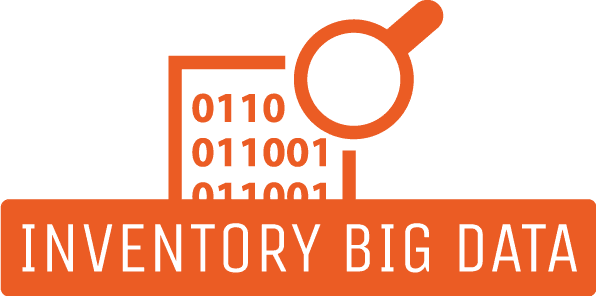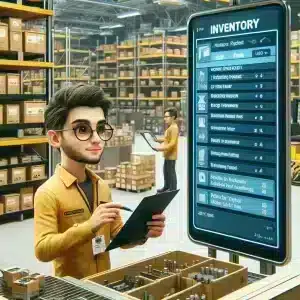Marlon – Store keeper
At a significant manufacturing entity, Marlon has built a reputation for adeptly overseeing stock and mitigating challenges. His swift actions in addressing a misplaced item underscore his problem-solving skills. Furthermore, he actively explores tech-driven solutions with leadership to boost warehouse efficiency.
Description
Who is Marlon ?
Marlon is a storekeeper at a large manufacturing company. He is responsible for managing the inventory of raw materials, finished products, and spare parts that the company uses in its production process. Marlon has been working at the company for several years, accumulating extensive knowledge and experience in his role.
Marlon’s career in inventory management began shortly after he completed his studies in logistics and supply chain management. His first job was at a small logistics firm, where he learned the basics of inventory control and warehouse operations. Over the years, he developed a keen eye for detail and a reputation for efficiency and reliability.
At his current company, Marlon quickly proved himself indispensable. He implemented a new inventory tracking system that significantly reduced errors and streamlined the restocking process. His dedication to maintaining an organized and efficient warehouse has earned him the respect and trust of his colleagues.
One day, Marlon received a request from the production team to restock a particular type of raw material that they were running low on. Marlon checked the inventory and saw that they had enough of the raw material in stock to meet the production team’s needs. However, when he went to retrieve the raw material from the storage area, he realized that it had been stored in the wrong location.
Marlon immediately notified the production team of the issue and worked with them to come up with a solution. He coordinated with various departments, using his extensive network within the company to locate the missing raw material and ensure it reached the production line as quickly as possible. In the end, Marlon’s quick thinking and problem-solving skills helped to minimize the disruption to the production process and keep the company running smoothly.
Beyond his technical skills, Marlon is known for his dedication to continuous improvement. He regularly attends workshops and training sessions to stay updated on the latest trends and technologies in inventory management. His proactive approach has led to several innovations in the warehouse, including the adoption of AI and robotics to further enhance efficiency.
From then on, Marlon became known as a reliable and resourceful storekeeper, and the production team came to rely on him to keep their materials organized and easily accessible. Marlon takes pride in his work and enjoys being a vital part of the company’s operations. His ability to handle challenges with composure and creativity has made him a cornerstone of the company’s supply chain, ensuring that operations run smoothly and efficiently.
Meeting routines
“Productivity Improvement Discussion between Warehouse Worker and Manager”
Marlon, the warehouse worker, approached Nelson, the warehouse manager, to discuss productivity in their company.
Marlon: Hi Nelson, I wanted to talk to you about the productivity of our warehouse. I think we could be more efficient if we automated some of the data processing.
Nelson (Store Manager): Hi Marlon, I agree with you. What data processing do you think we could automate?
Marlon: Well, we could use inventory management software to automatically and accurately record inventory movements. This would avoid human errors and reduce the time we spend recording inputs and outputs.
Nelson: That’s a good idea. We could also use barcodes to facilitate inventory tracking and reduce the time we spend looking for products.
Marlon: Yes, that’s another good idea. We could also use automated forklifts to move products around the warehouse. This would save time and reduce the risk of manual handling injuries.
Nelson: I agree with you. However, we also need to consider the costs associated with automation. We need to make sure that the benefits of automation outweigh the costs.
Marlon: Yes, that’s true. We need to conduct a cost-benefit analysis to determine if automation is profitable for our company.
Nelson: Exactly. We also need to consider the impact on employment. Automation can reduce the number of workers needed, so we need to be aware of this and consider alternatives for affected workers.
Marlon: That’s a good point. We also need to consider training for remaining employees to prepare them to work with new technologies.
Nelson: Absolutely. Thank you for these ideas, Marlon. I will discuss with management to see how we can implement these solutions to improve the productivity of our warehouse.
Additional information
| Human Ressource |
|---|





